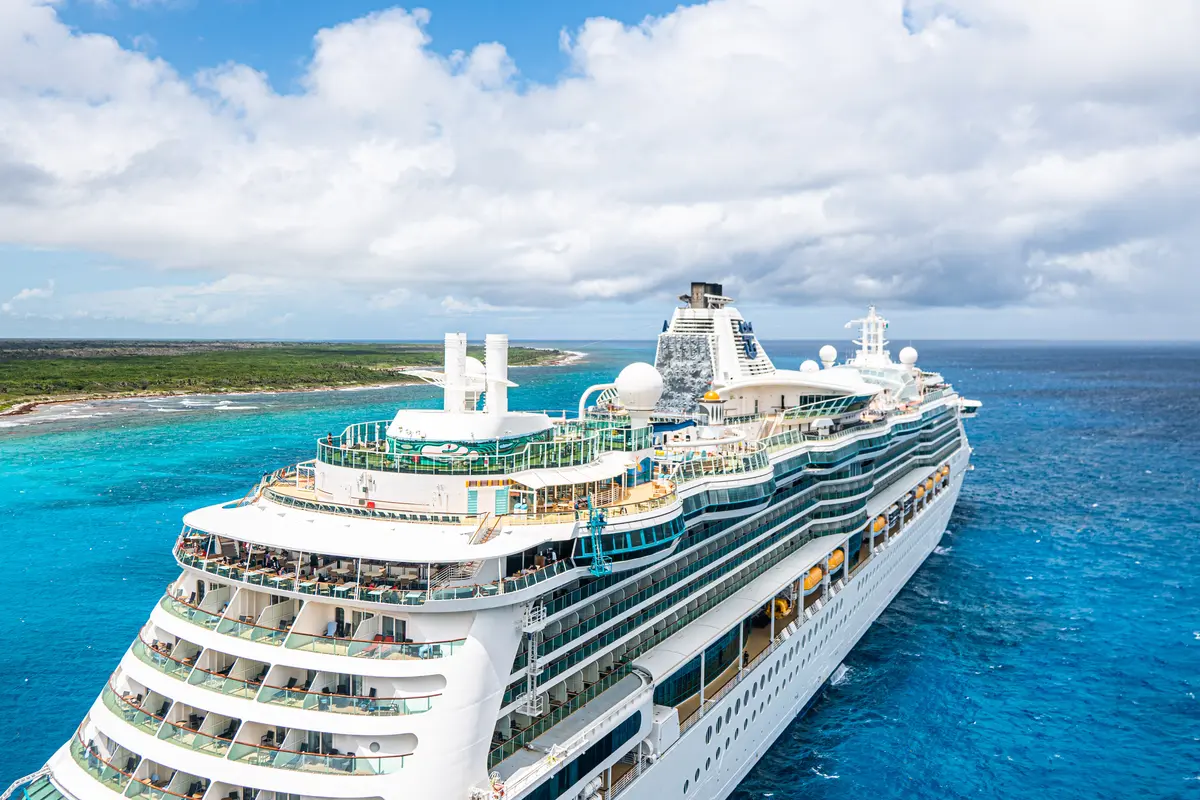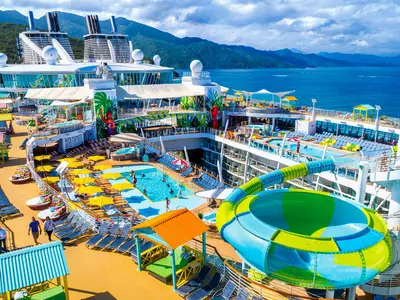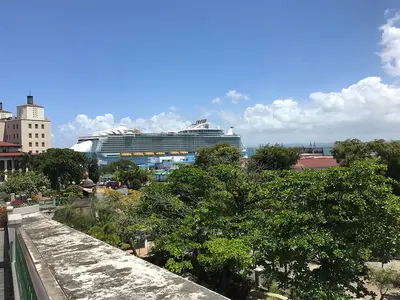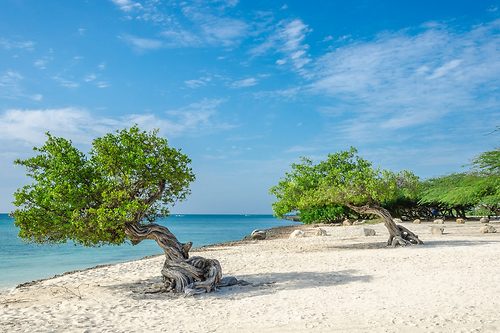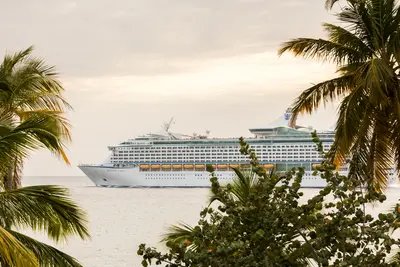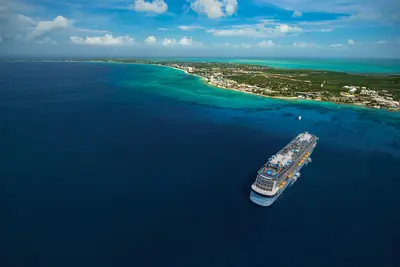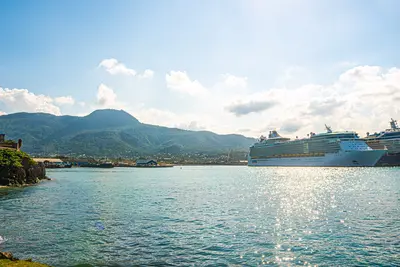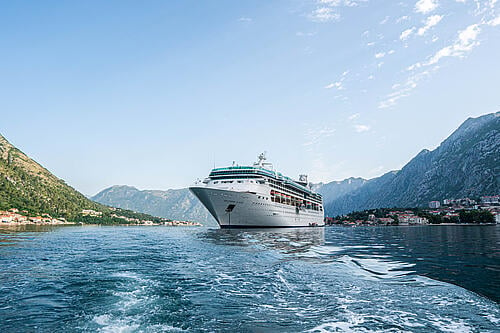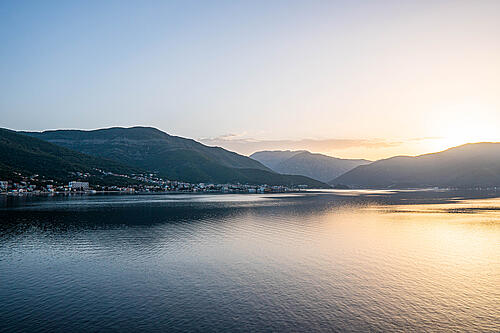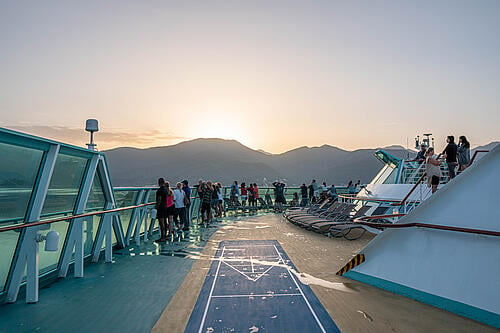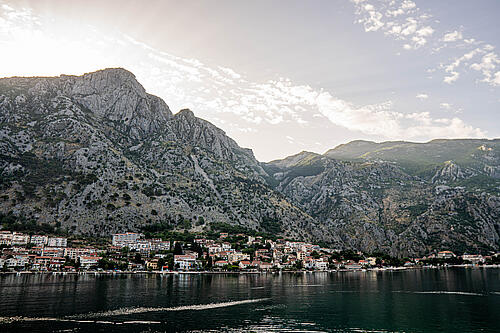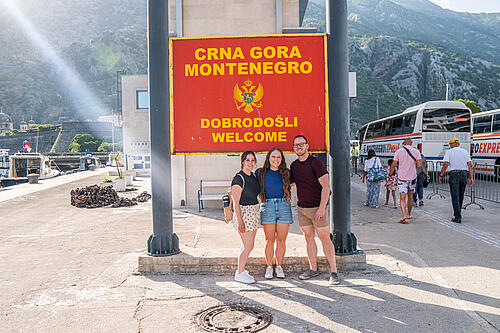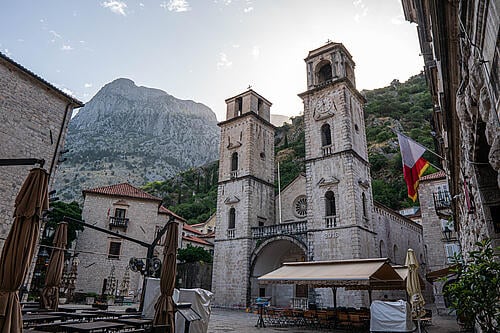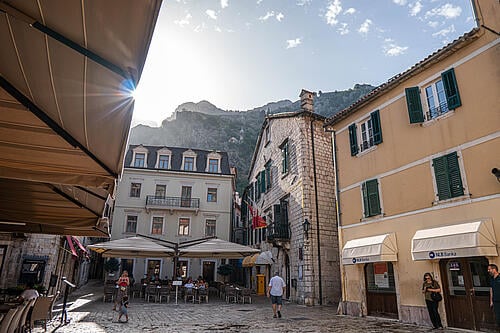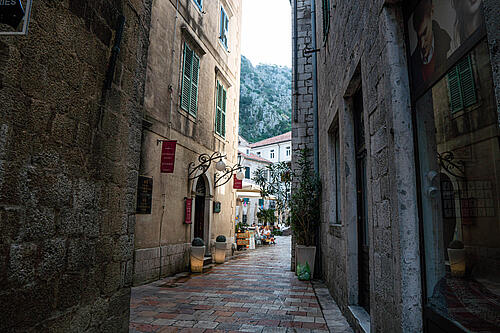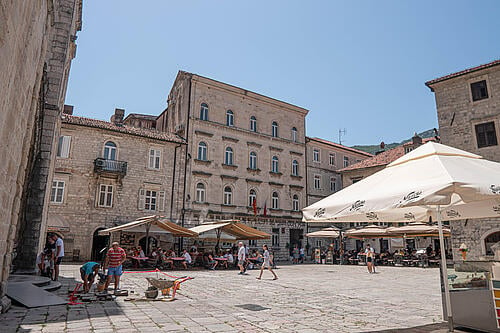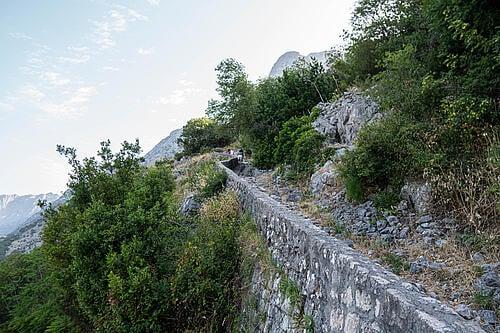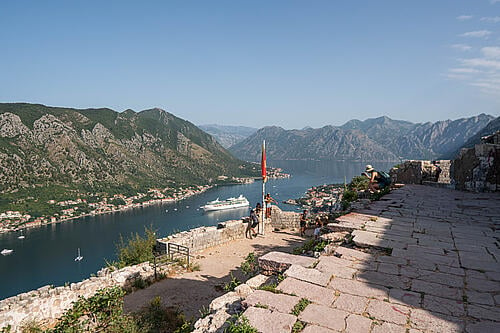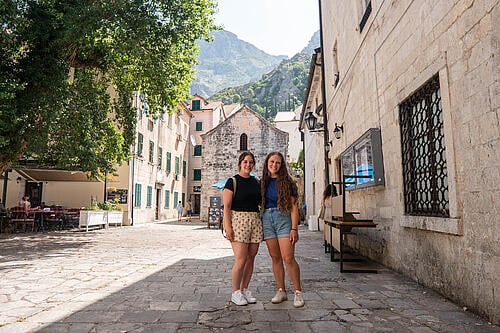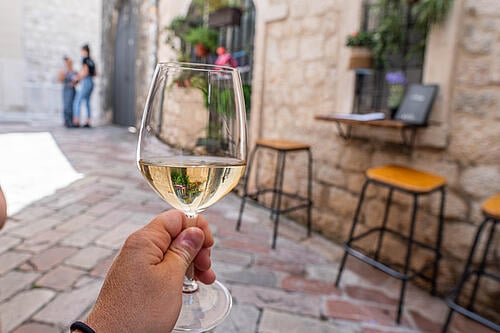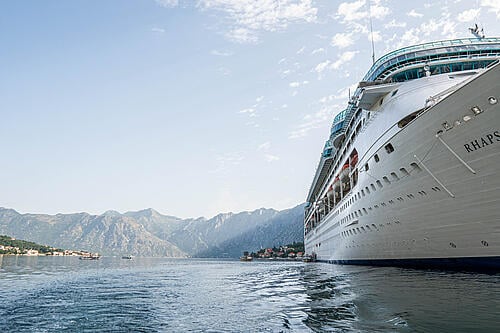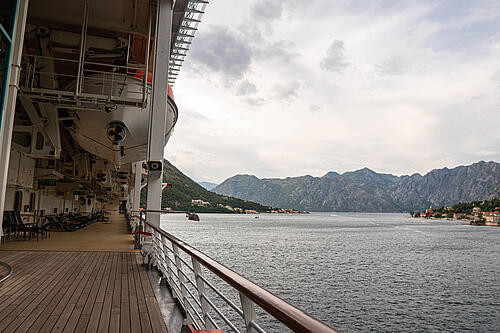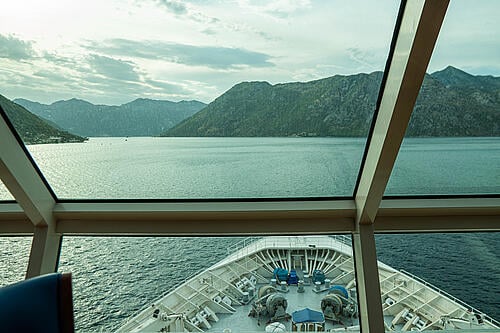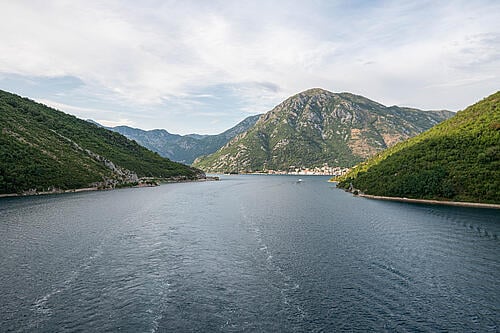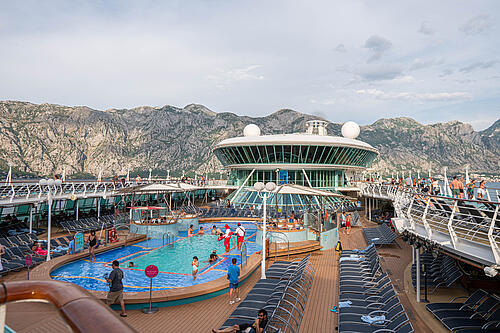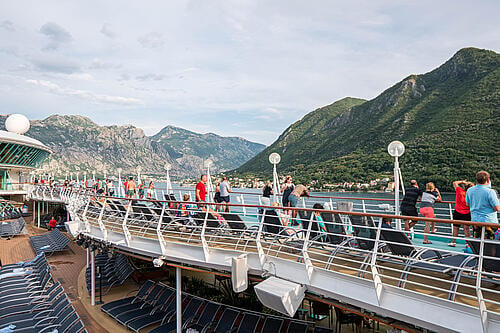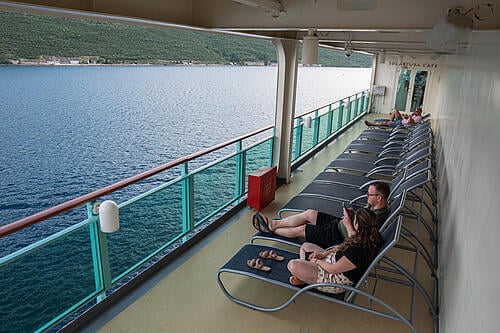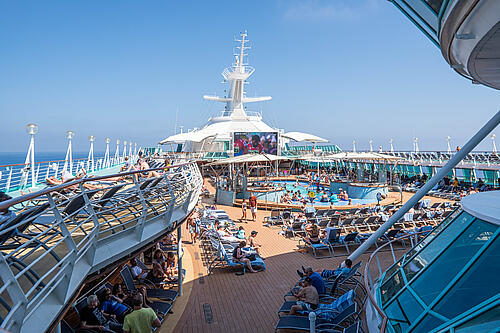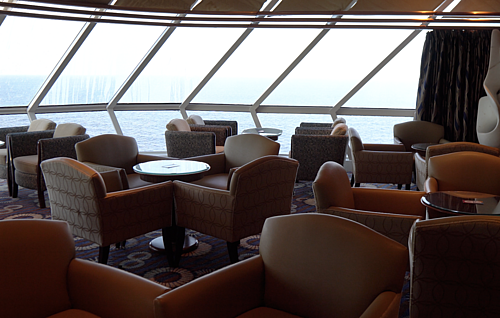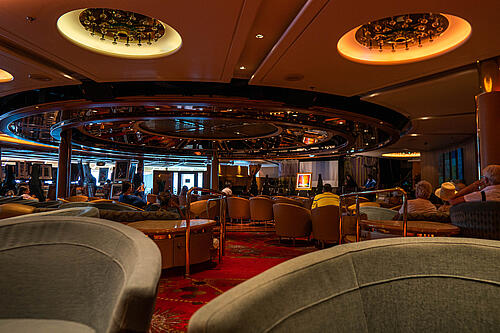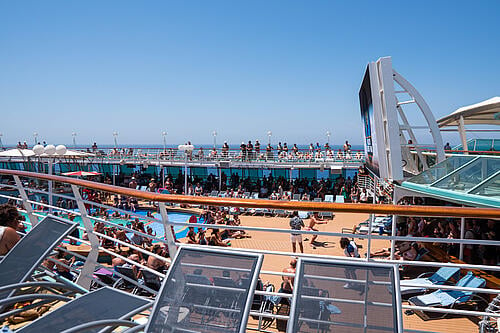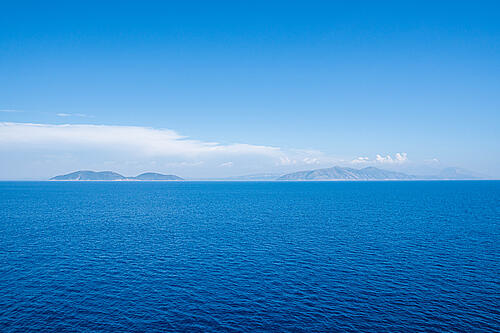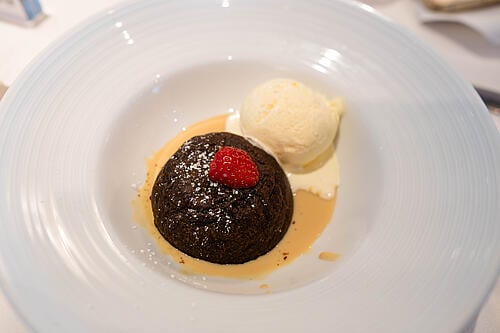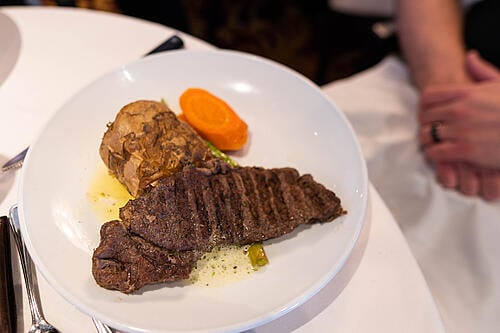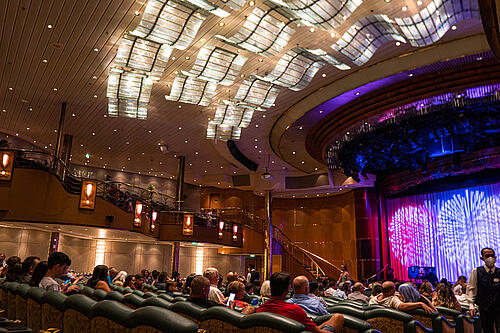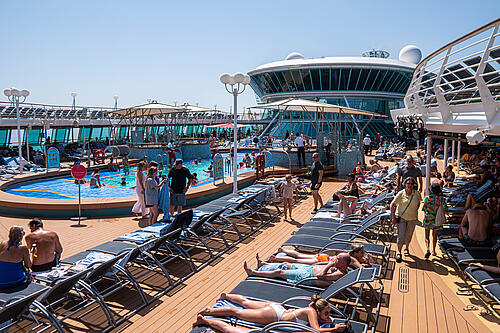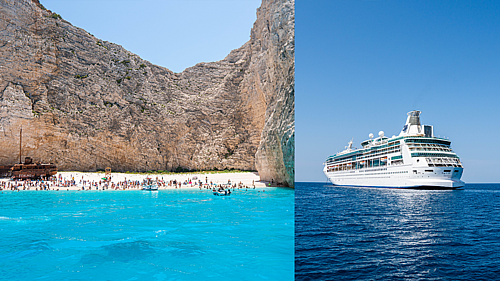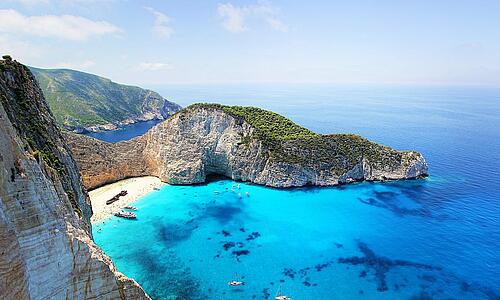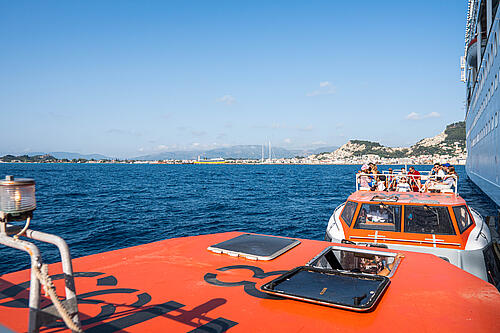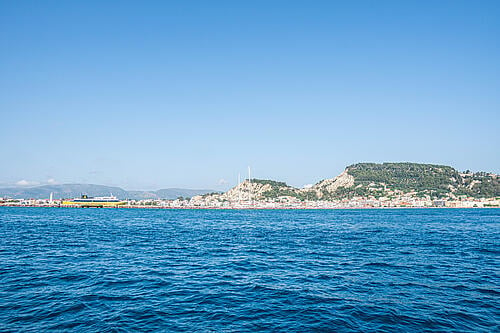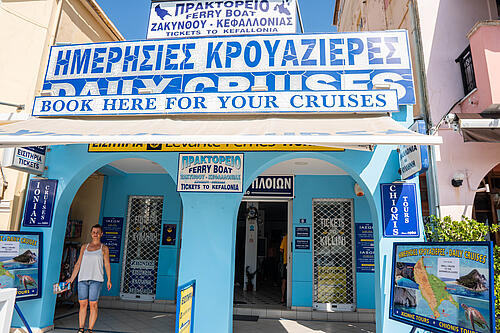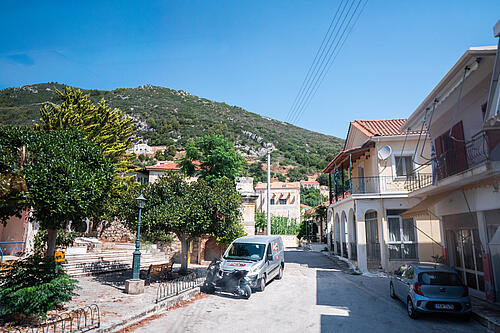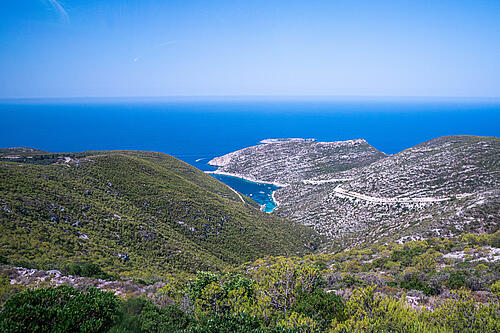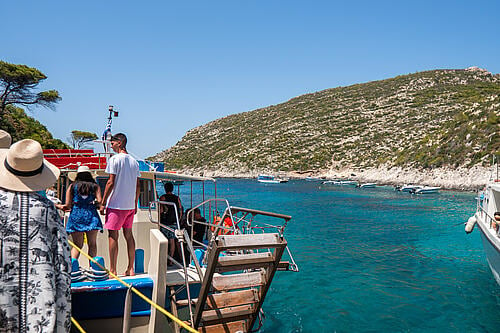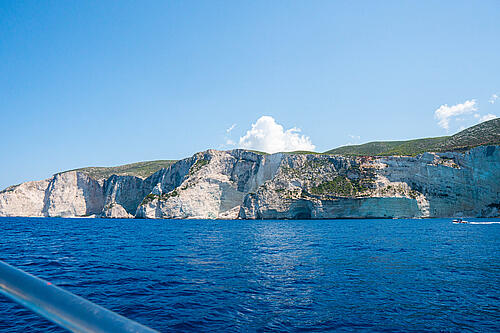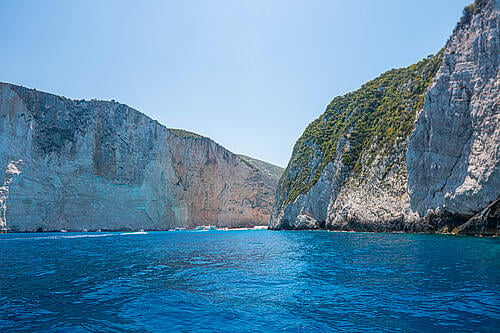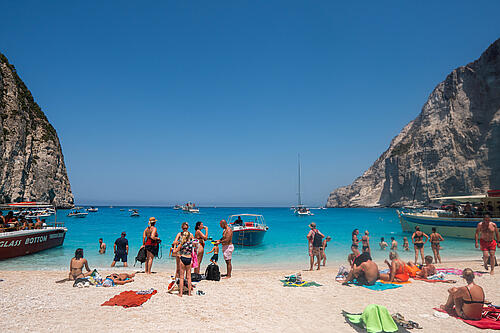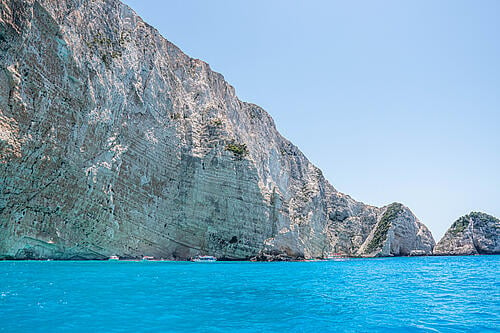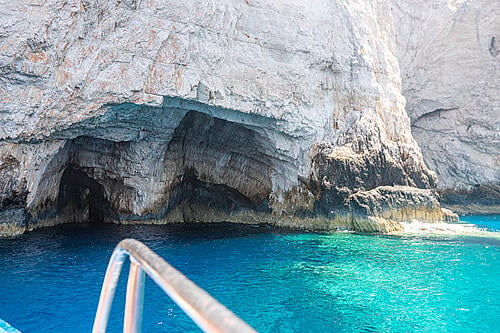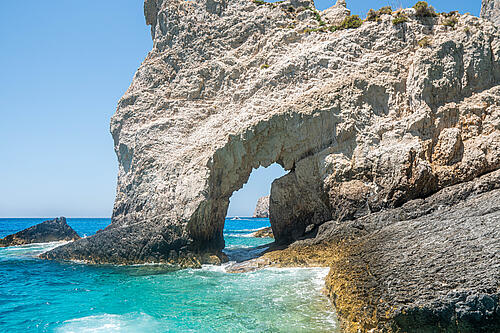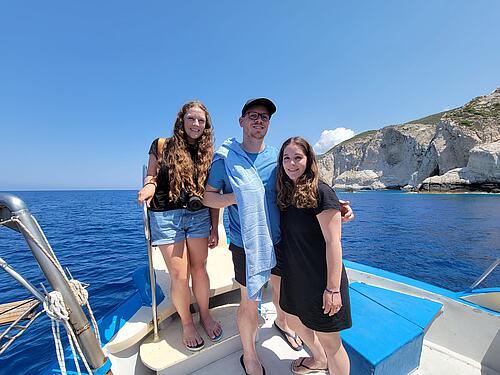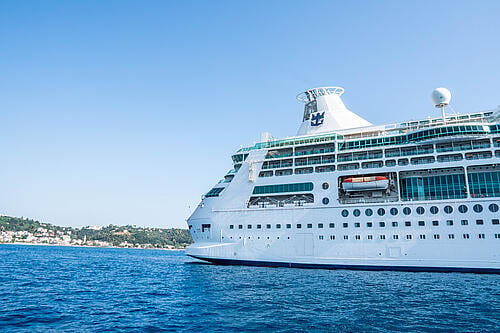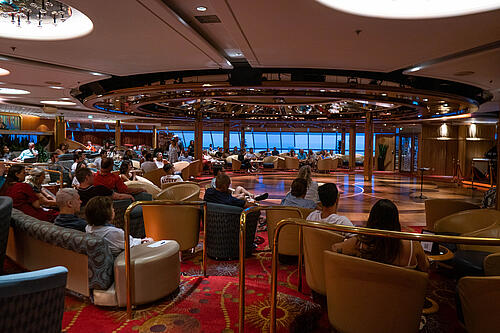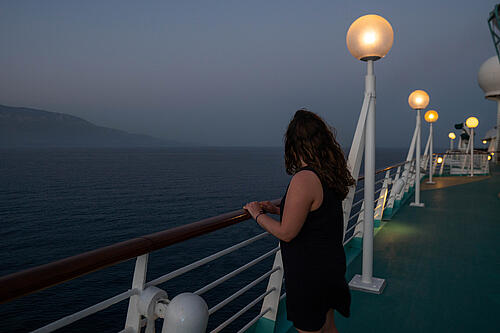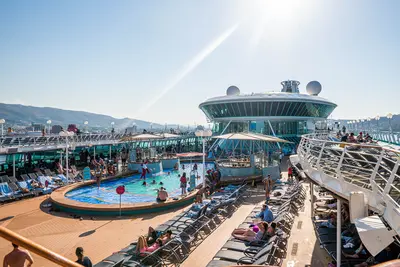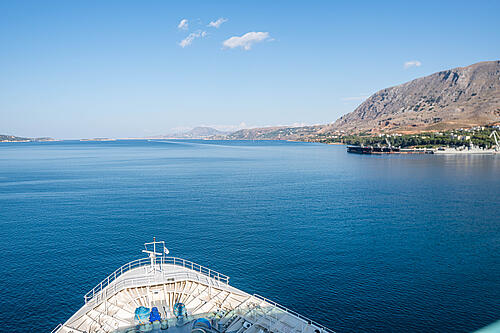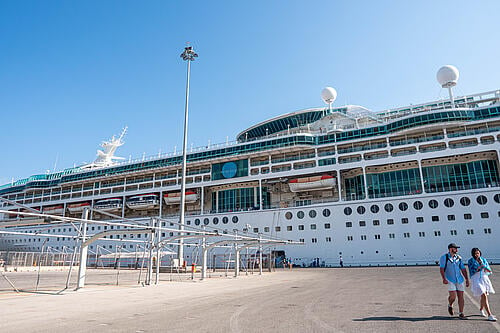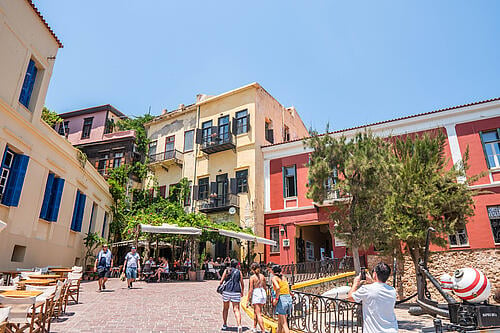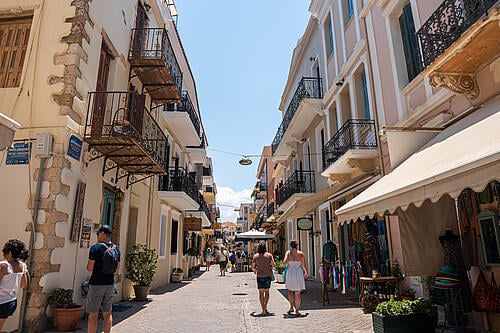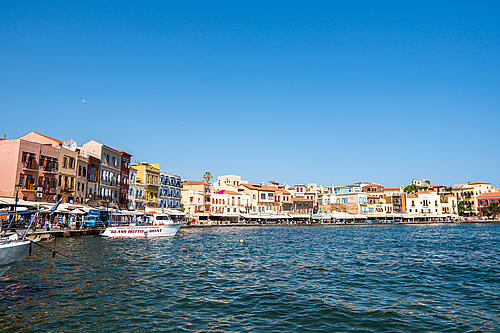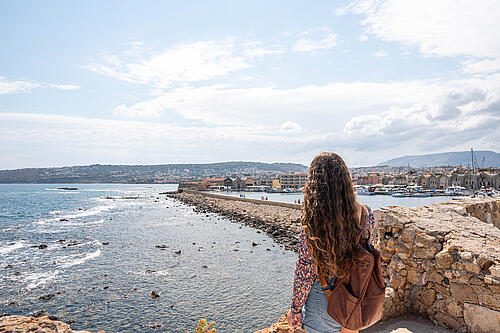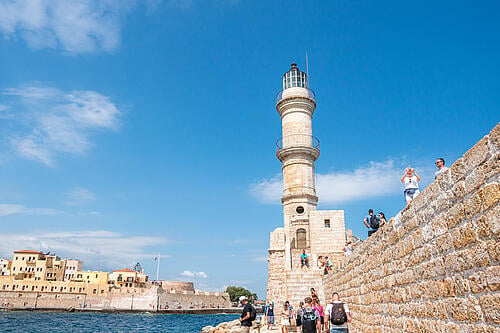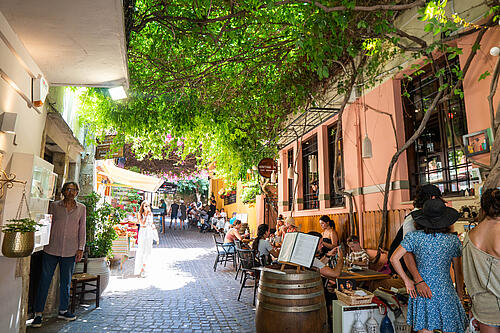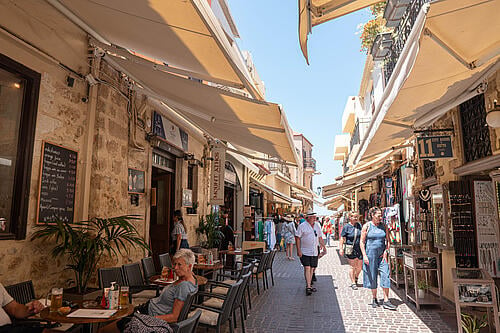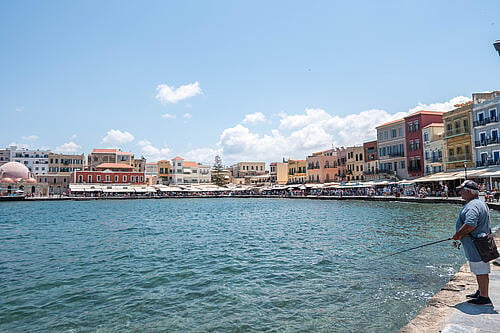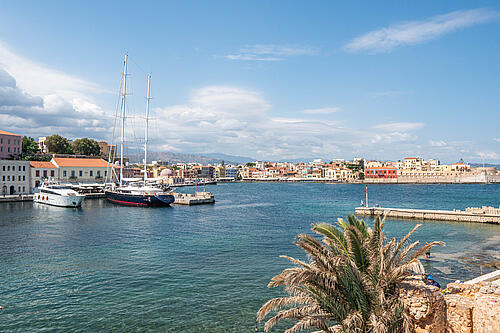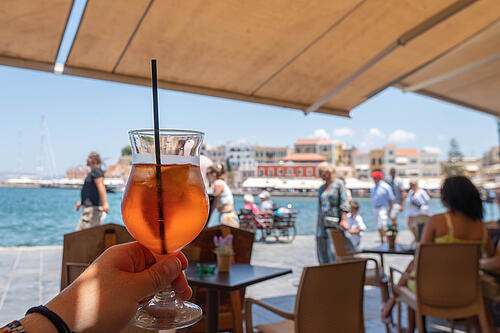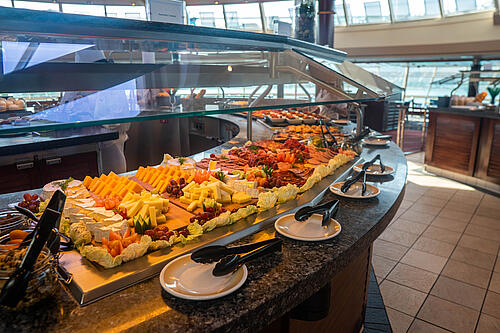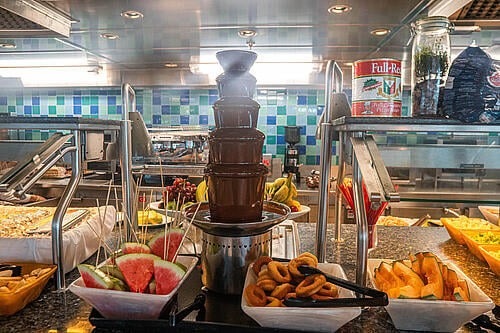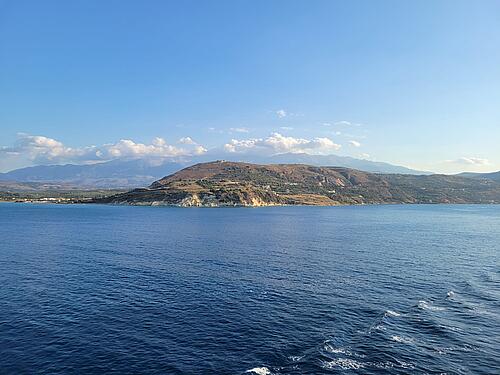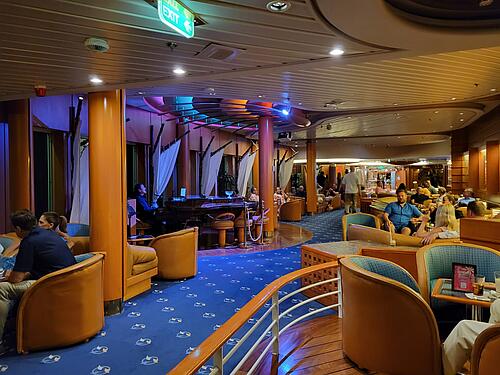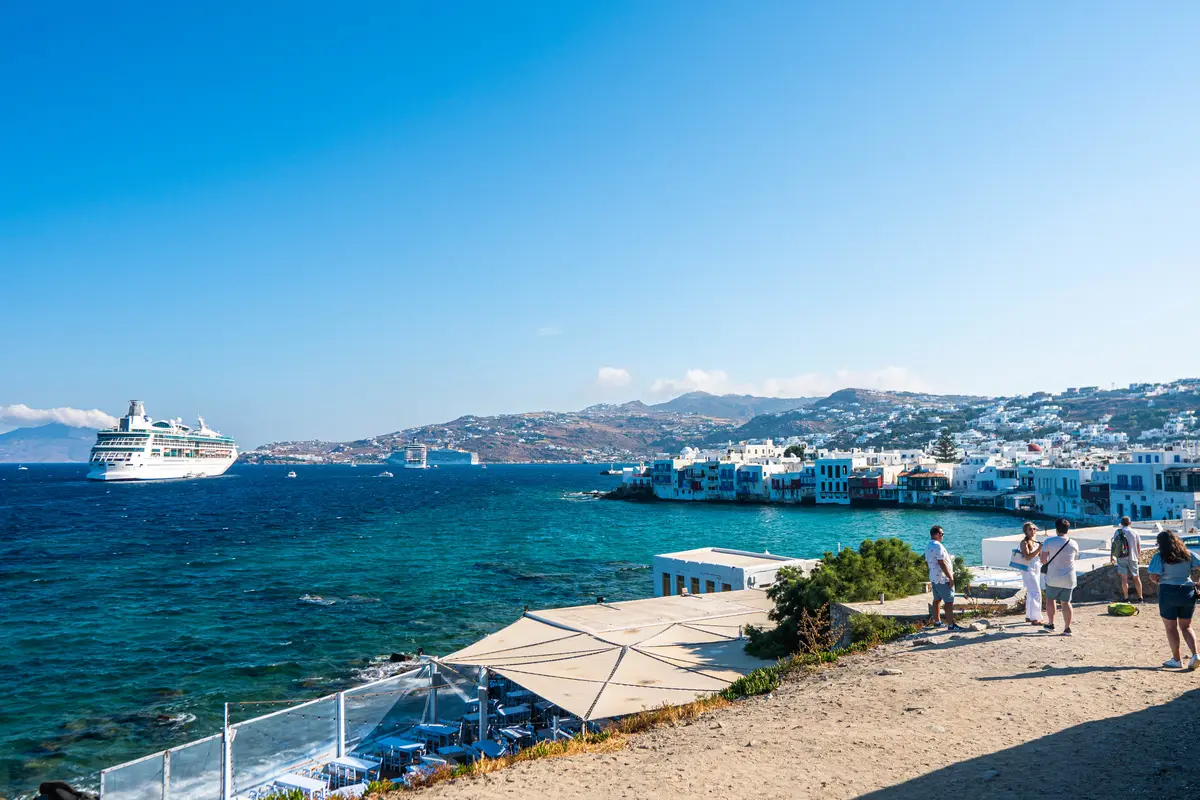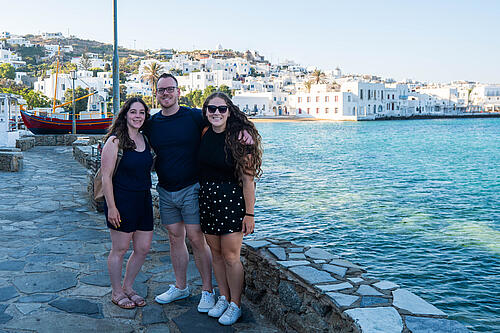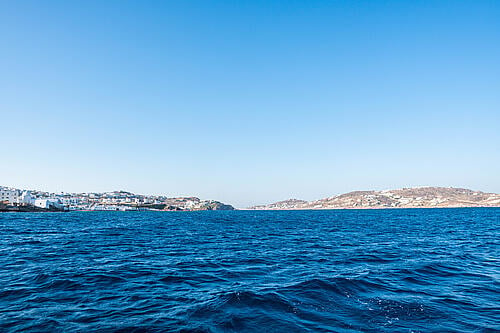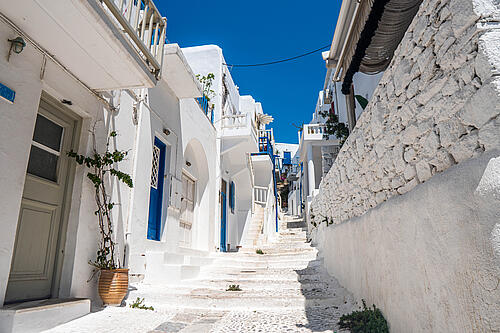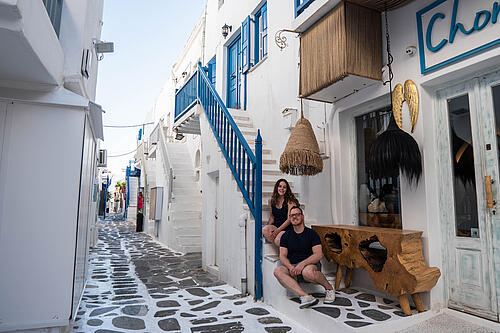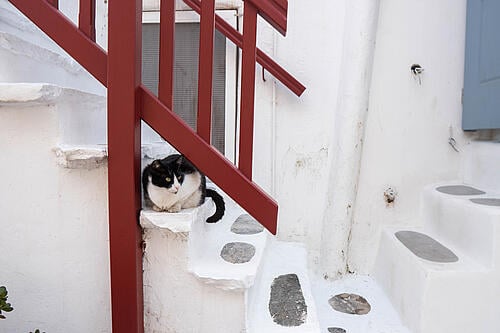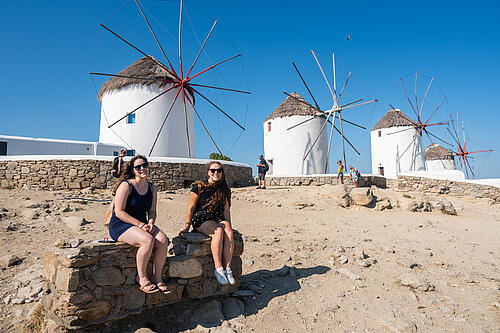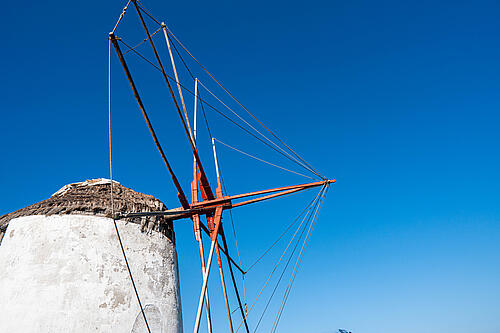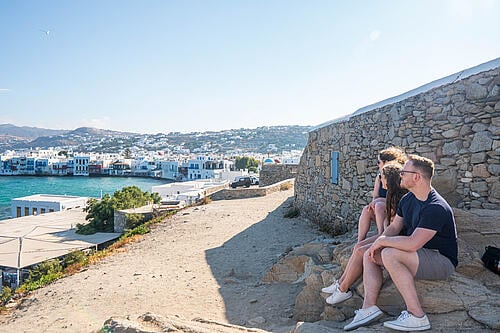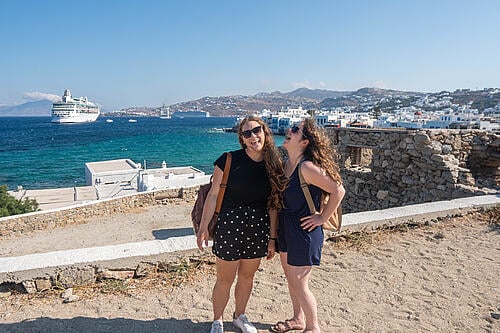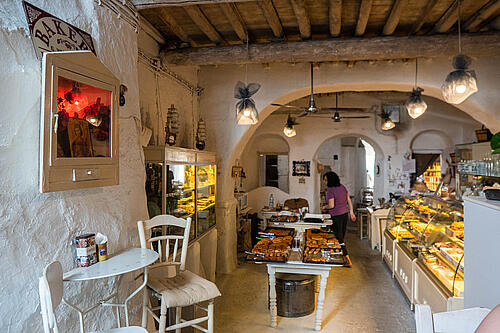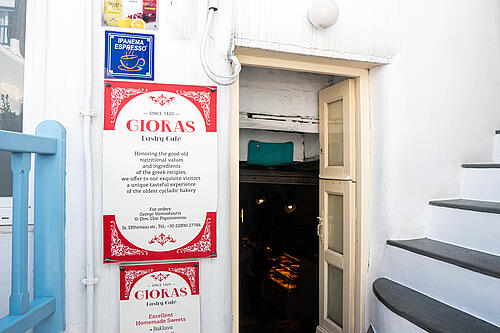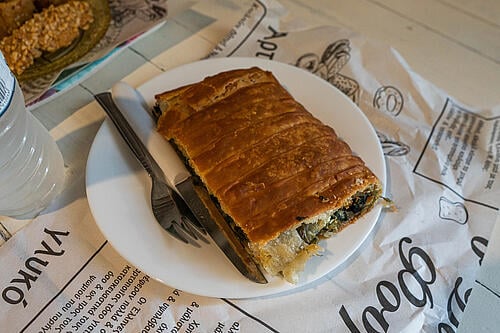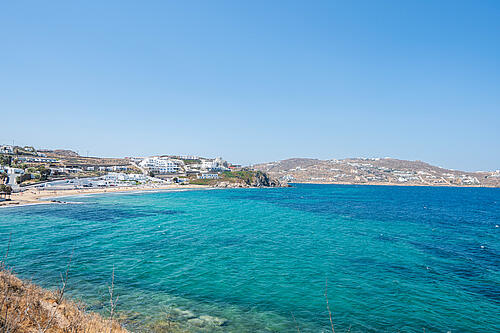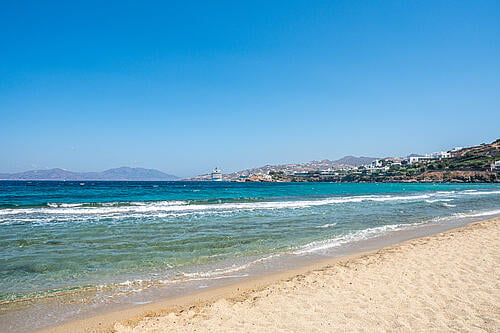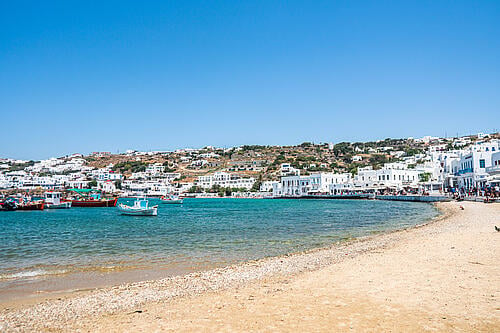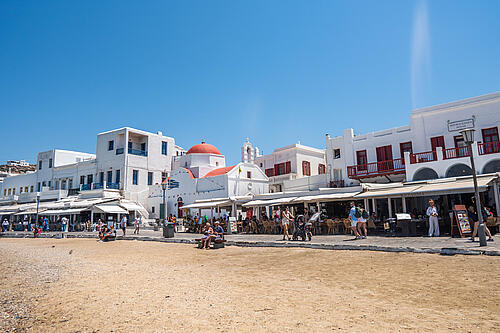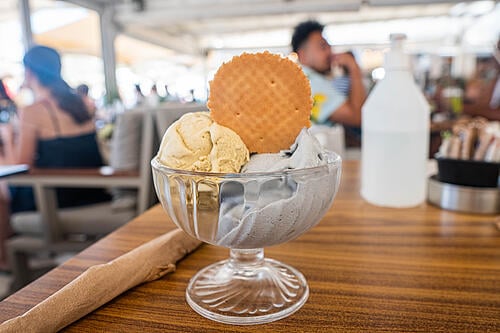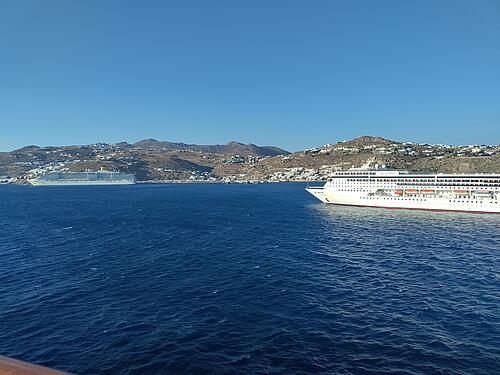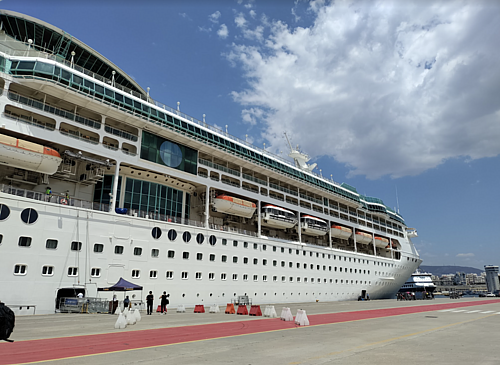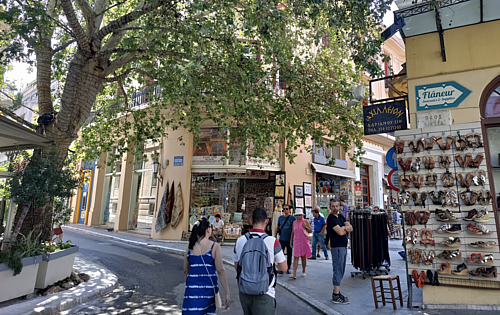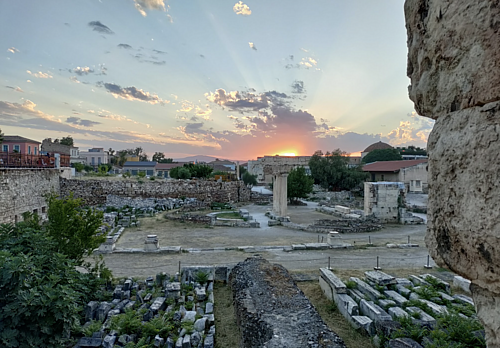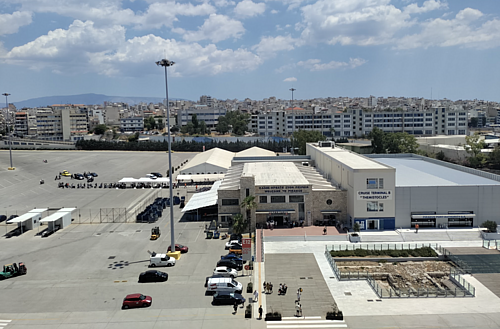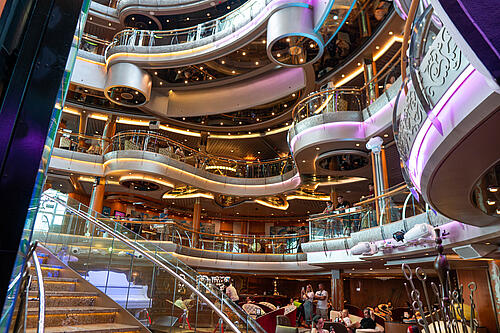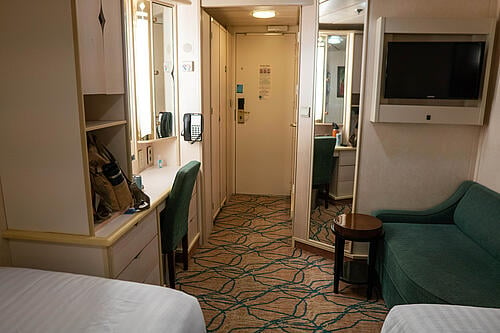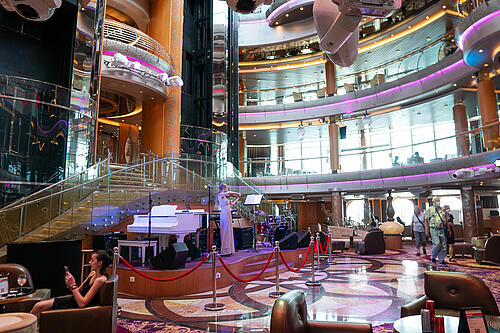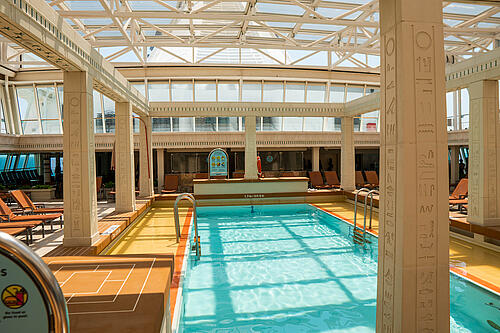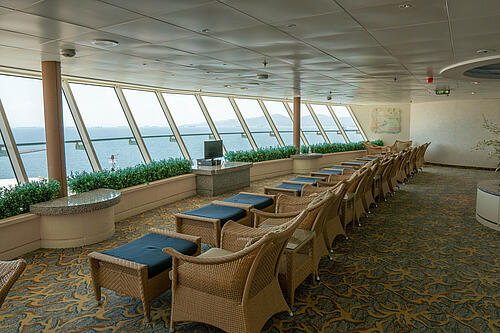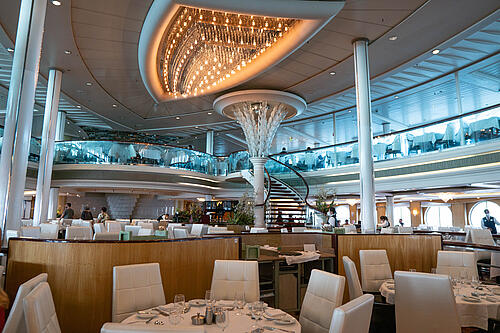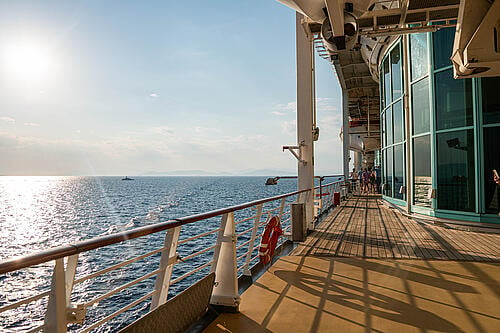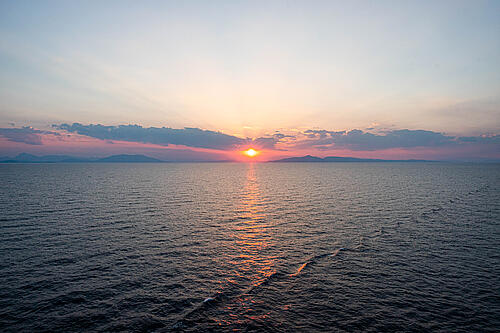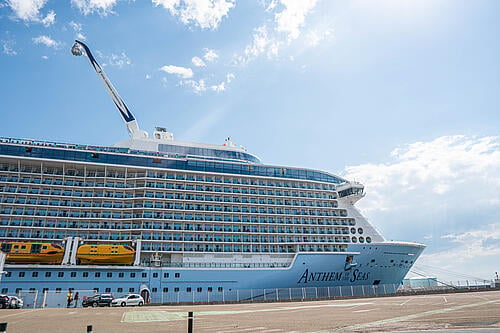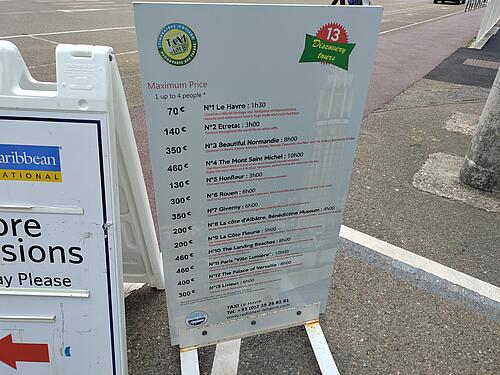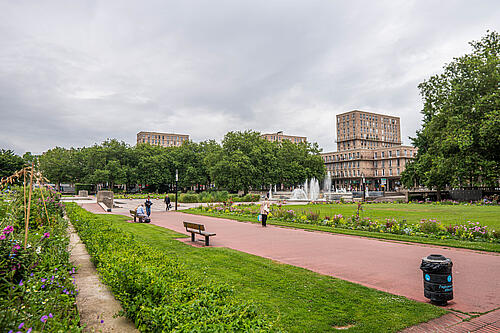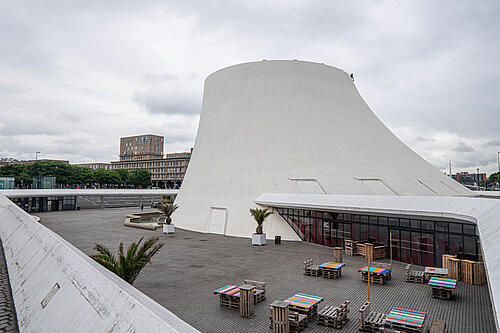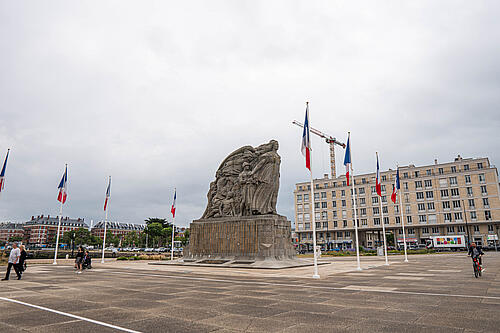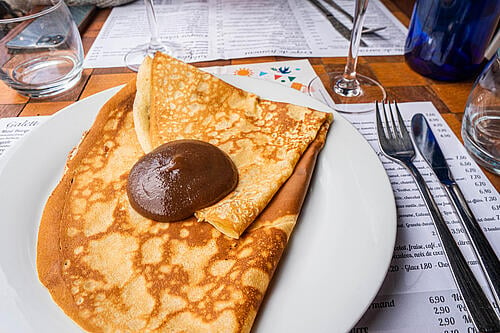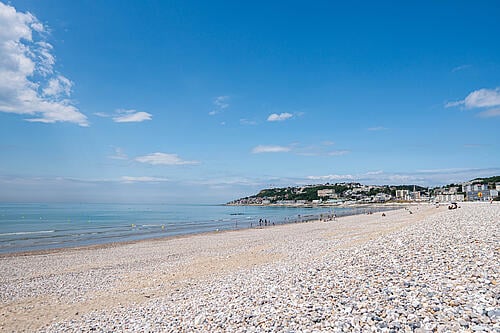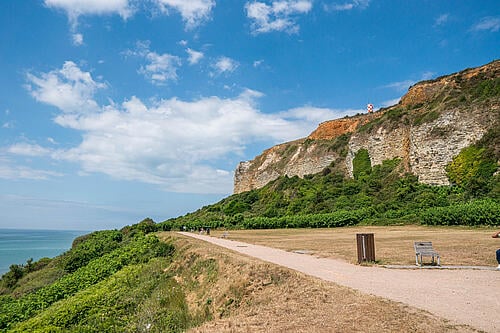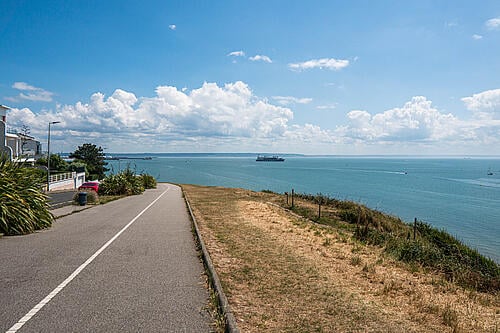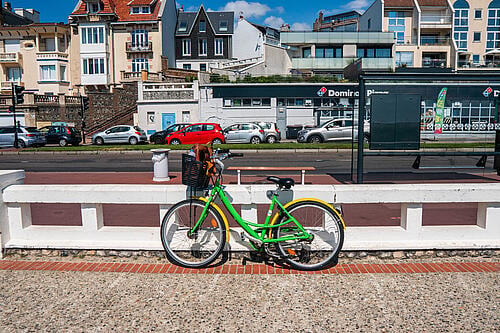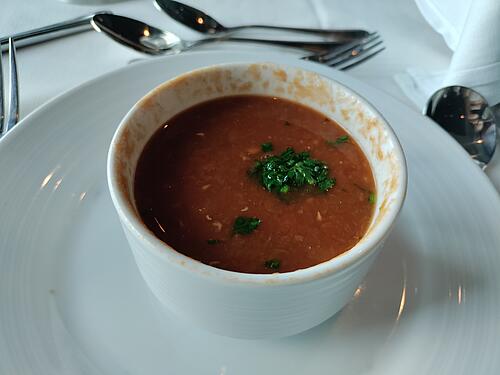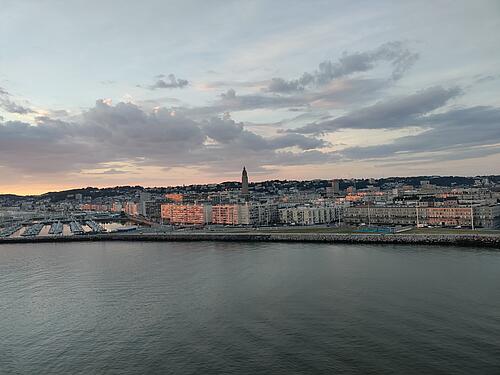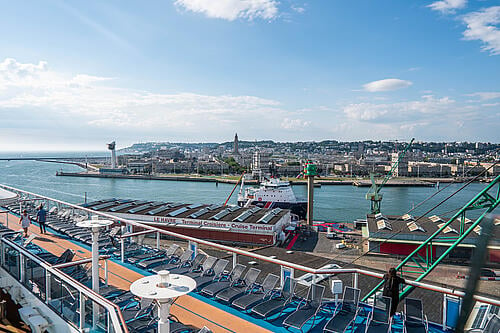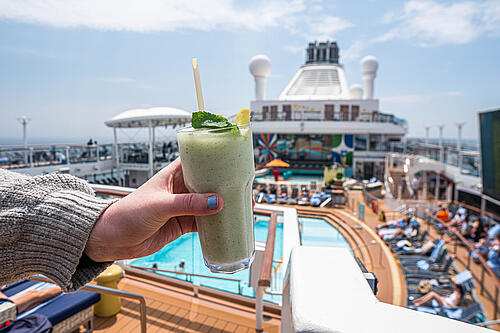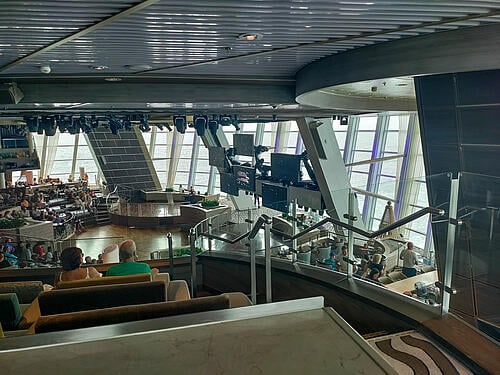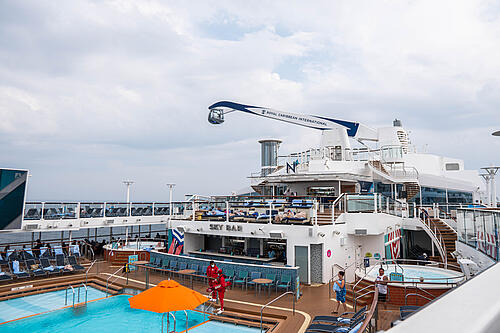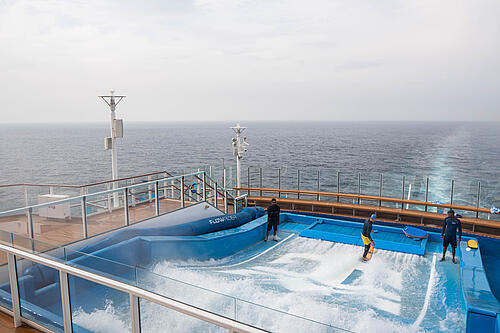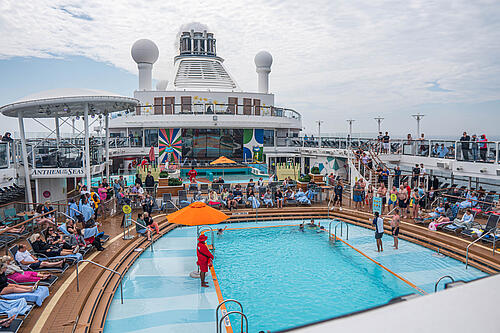Rhapsody of the Seas Live Blog - Day 7 - Split, Croatia
In:Our last port of call brought us to Split, Croatia. The past week has flown by way too quickly, and it was bittersweet disembarking the ship this morning knowing we were visiting the last of five beautiful ports on this itinerary!
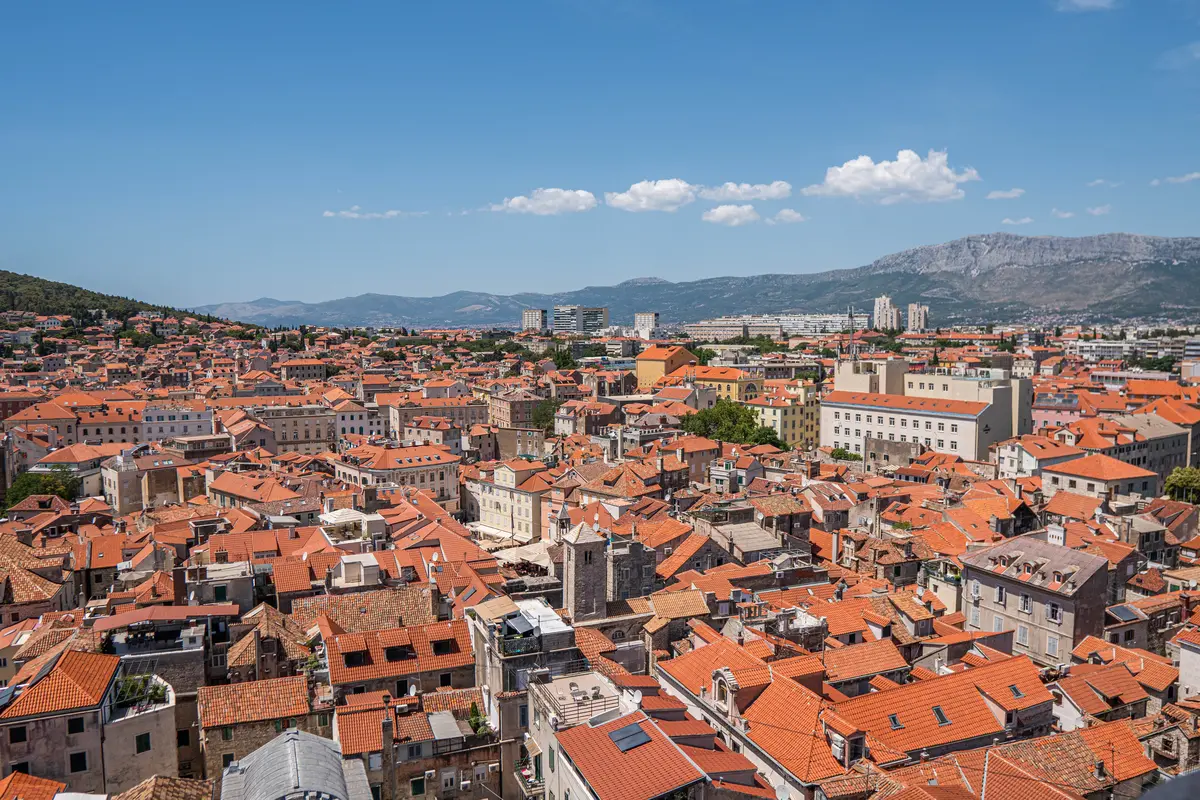
Split is the second biggest city in Croatia, and it's a seaside destination for both Croatians and international tourists.
Split is the first port we've had this week where you can walk off the ship and get to town without a tender or bus ride. It was a nice change of pace to be able to disembark on our own time and get to town quickly without spending time waiting around.
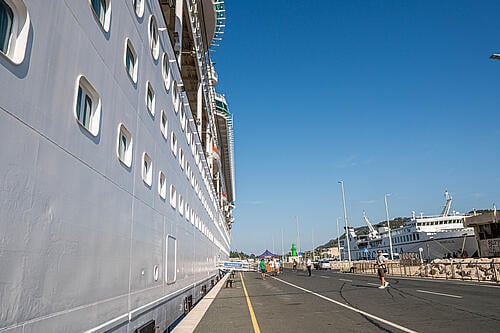
It was a ten minute walk from the port to town, where we walked through the city's walls into old town. Just like yesterday in Kotor, it was like we had stepped into medieval times.
Our first glance of Split was the central square of the Palace of Diocletian, an ancient palace built in the 4th century. The palace was built to be both a Roman military camp and a place for Diocletian, a Roman Emperor, to spend his retirement.
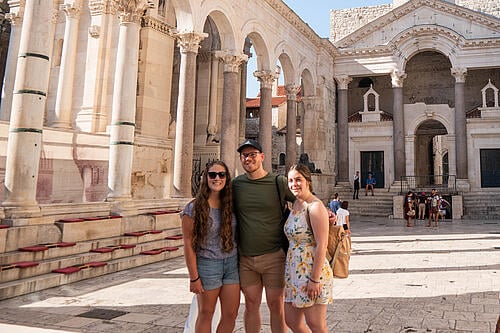
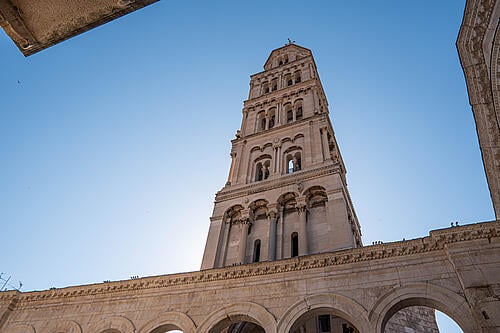
We spent some time navigating through Split's narrow streets and taking in the city's history. I was fascinated by the city's old walls, where the old section of Split met the new.
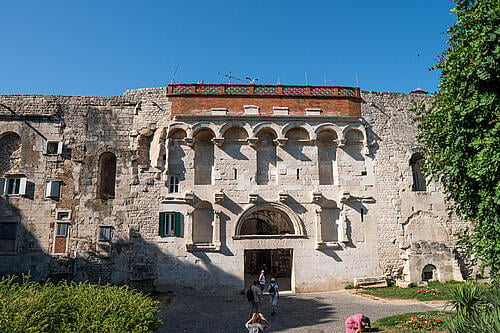
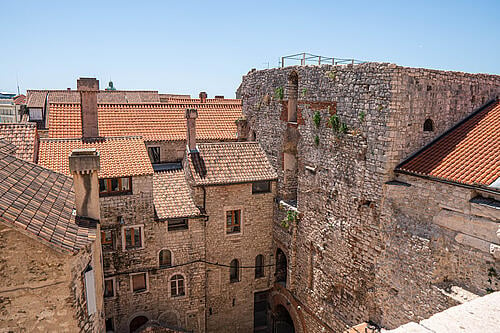
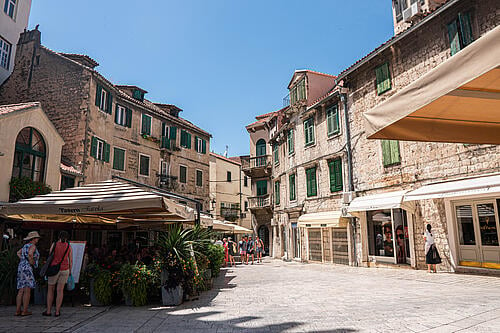
Interestingly enough, many exterior shots in the series Game of Thrones were filmed in Split. It's easy to see why they picked Split as a filming location, as parts of the city definitely make you feel like you've traveled back in time.
A Game of Thrones museum and souvenir shop are located in town, too, which could make for a fun activity for big fans of the series!

Afternoon at the beach
The temperature today was unpleasantly toasty at 96 degrees, so we didn't have the best conditions for walking around town all day.
Instead of roasting in the heat, we decided to visit a nearby beach in the afternoon to cool down.
Split is known for being a resort town with plenty of beaches, so I was curious to see what the hype was about. We decided on Kasjuni Beach, located 15 minutes away from Split.
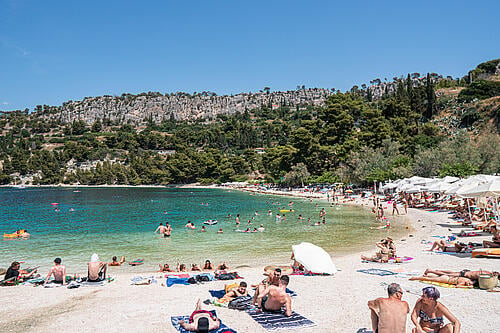
For whatever reason, my phone service was not working this morning in Croatia, so I could not order an Uber to the beach. Instead we grabbed a taxi near Split's old town entrance. The taxi was metered, but at around $30 for a 15-minute ride to the beach, it seemed pretty steep.
Kasjuni Beach is located in a small cove, so the water is calm, clear, and refreshing. Greenery and hills line one side of the beach, whereas the other faces the open Adriatic.
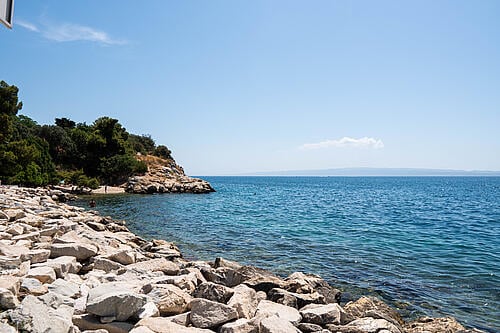
We forgot to bring pool towels out with us this morning (a rookie mistake!), so we decided to rent beach chairs to use for the day. A beach club operates on Kasjuni Beach and offers daybed and beach chair rentals. A restaurant and bar are also available, as well as changing areas and restrooms.
We stayed at the beach for around two and a half hours, where we cooled off in the sea, relaxed on our beach chairs, and enjoyed a lunch we packed from a bakery in Split.
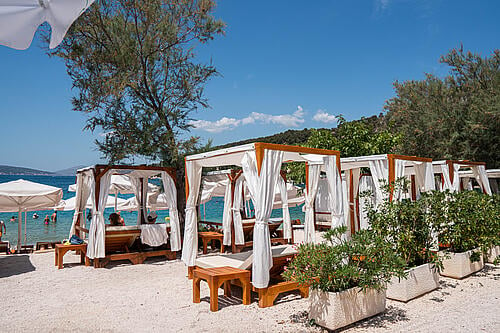
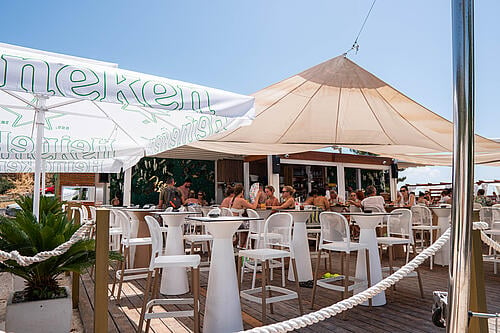
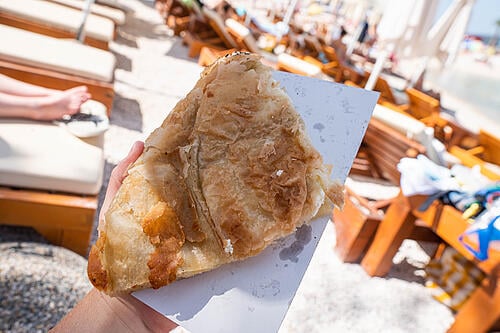
Fortunately my phone service began working later in the day, so we were able to Uber back to town for about $8 (over $20 cheaper than the taxi!).
Back to Split
While the beach was really nice, we wanted to head back to Split to explore more of the old city. After all, we can find beaches anywhere in the world, but we would only have a few more hours to explore Croatia!
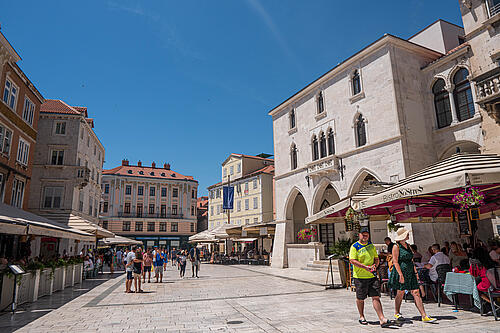
We did some souvenir shopping in the city and enjoyed some tasty gelato. In these historic towns, it's just as fun to wander around without a plan as it is to plan a full day of sightseeing!

Our last stop of the day was a climb up the bell tower at Diocletian’s Palace, which stands over 180 feet in the air and offers panoramic views of Split. We purchased tickets to the bell tower for $6 each and began the climb. Extremely steep stone stairs at the beginning of the tower turned into metal stairs a few flights up, which were much easier to climb.
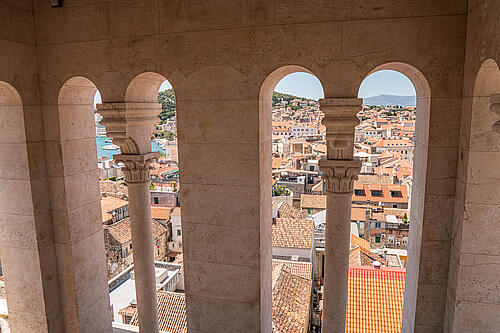

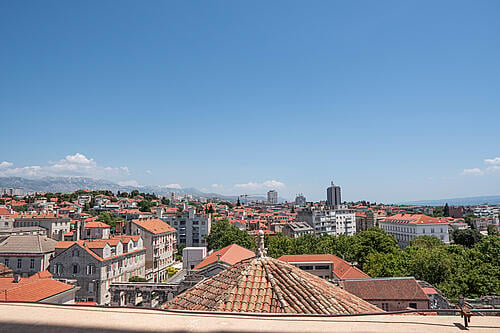
The view from the top was spectacular, offering views of Split, the port, the Adriatic, and surrounding mountains.
Back onboard
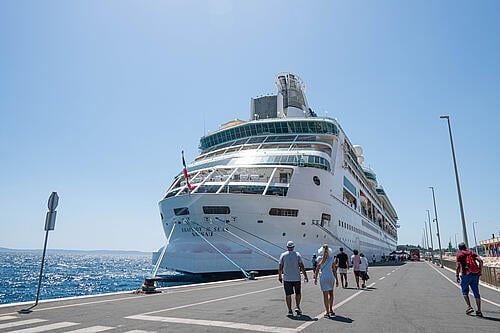
Our port day in Split was short today, with all-aboard at 4PM. Once we got back onboard, I spent a couple hours working on Royal Caribbean Blog content in the Centrum. With views of Croatia and the Adriatic as we sailed away from Split, it was as good as an "office" can get!
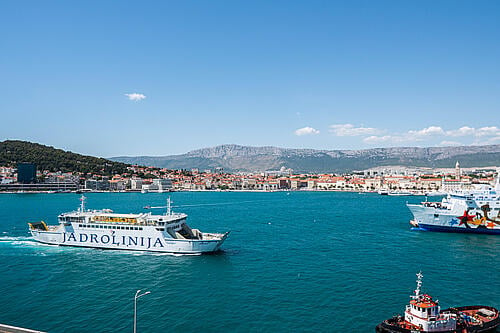
We still had around $100 of onboard credit available to spend, so we made a reservation at Izumi for dinner tonight. There is no hibachi option on Rhapsody of the Seas, so we enjoyed udon noodle dishes, ramen, fried rice, and potstickers!
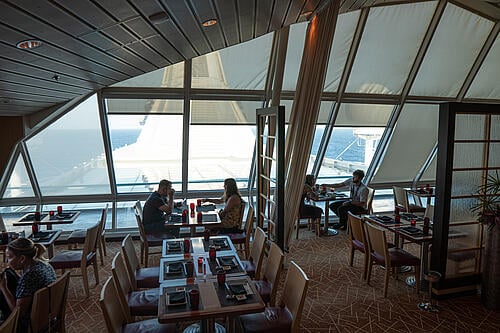


Everything was delicious as usual, and a meal at Izumi isn't over until you have mochi ice cream and crispy red bean sesame balls.

We ended our night with a gorgeous sunset on the pool deck before heading back to our staterooms to (sadly) pack our bags.
I think this has been the best cruise itinerary I've ever done (although it may be tied with Alaska). It was very port-intensive, so I wouldn't say it was the most relaxing cruise, but the early mornings and thousands of steps walked in port were beyond worth it.
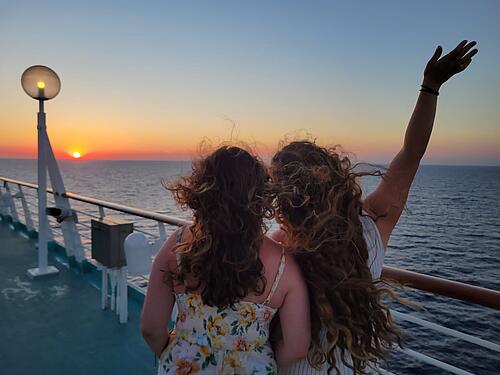
I'm sad to see this cruise end, but I'm super glad I got to share this experience with my siblings. The good news? Our cruise ends tomorrow in Italy, which makes for a good excuse to keep exploring Europe!
Thanks for following along on my live blog! We'll be back again with more live blogs from Matt on Mariner of the Seas during the Royal Caribbean Blog group cruise later this month.


